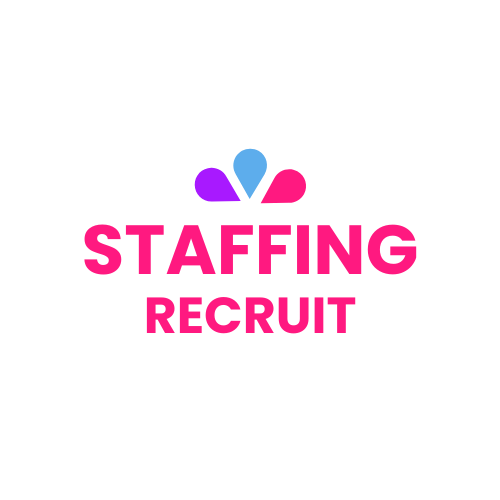Introduction
The healthcare industry is at a crucial point in hiring new talent, with pre-video interviews becoming a game-changing solution for modern hiring problems. These digital screening tools allow healthcare organisations to conduct initial candidate assessments remotely, making the recruitment process more efficient while still ensuring high-quality hires.
As the healthcare sector continues to grow rapidly, it’s become essential to adopt innovative hiring strategies. Industry projections indicate an 18% increase in job opportunities by 2026, which means 2.3 million new positions will need to be filled. However, healthcare organisations are facing significant challenges in finding qualified talent:
Critical staffing shortages across multiple disciplines
Intense competition for skilled healthcare professionals
Rising costs associated with traditional recruitment methods
Need for faster, more efficient hiring processes
Pre-video interviews tackle these challenges head-on by offering a structured and efficient way to evaluate candidates. This technology allows healthcare organisations to:
Screen candidates effectively at scale
Reduce time-to-hire metrics
Maintain consistent evaluation standards
Create a positive candidate experience from the very first interaction
Understanding the Current Landscape of Healthcare Hiring Challenges
The healthcare sector faces unprecedented workforce demands, with projections indicating an 18% growth by 2026. This expansion translates to approximately 2.3 million new job opportunities across various medical specialties and support roles.
Critical Staffing Shortages
Critical staffing shortages persist in several key areas:
Nursing: The field experiences a 22.7% turnover rate, with replacement costs reaching $36,567 per registered nurse
Midwifery: Current estimates show a significant gap between available professionals and patient needs
Specialised Care Providers: Shortages in critical care, emergency medicine, and geriatric care specialists
Global Workforce Needs
The World Health Organisation’s data reveals an alarming forecast: healthcare organisations will need an additional 18 million workers by 2030 to meet global healthcare demands. These shortages directly impact patient care quality through:
Increased wait times for medical procedures
Reduced patient-provider interaction
Higher stress levels among existing staff
Compromised healthcare delivery standards
Organisational Struggles
Healthcare organisations struggle with:
Geographic Disparities: Rural areas face severe staffing challenges
Competitive Markets: Multiple facilities competing for limited talent pools
Aging Workforce: Experienced professionals retiring at accelerated rates
Training Gaps: Limited capacity in educational programs to produce new healthcare workers
Financial Implications
The financial implications of these staffing challenges extend beyond recruitment costs. Healthcare facilities report significant expenses related to temporary staffing solutions, overtime payments, and productivity losses due to understaffing situations.
The Role of Technology in Transforming Healthcare Recruitment Practices
Digital innovation has transformed healthcare recruitment, bringing in advanced solutions that make hiring processes smoother and improve candidate selection. Recruitment Process Outsourcing (RPO) platforms now use artificial intelligence and machine learning algorithms to find qualified healthcare professionals with unmatched accuracy.
Key technological advancements reshaping healthcare recruitment:
- AI-Powered Candidate Matching
Automated screening of resumes against job requirements
Predictive analytics for candidate success potential
Natural language processing for improved job description targeting - Digital Assessment Tools
Skills verification platforms
Virtual reality simulations for clinical scenarios
Automated reference checking systems
Healthcare organisations using these digital solutions report:
60% reduction in time-to-hire
45% decrease in recruitment costs
35% improvement in candidate quality
Machine learning algorithms look at large amounts of data from successful placements to find patterns in candidate profiles, resulting in better matches for healthcare positions. These systems keep learning from hiring results, making their selection criteria more precise and improving prediction accuracy.
RPO platforms make recruitment more efficient by:
Automating scheduling and communication
Managing digital documents
Providing real-time analytics and reporting
Using candidate relationship management systems
The addition of blockchain technology provides another level of verification for credentials and work history, which is especially important in healthcare where accurate qualification verification is vital for patient safety and following regulations.
These technological solutions help healthcare organisations stay ahead in attracting talent while making sure they follow industry rules and standards. Because these systems are automated, hiring teams can concentrate on strategic decisions and meaningful interactions with candidates.
How Pre-Video Interviews Address Key Challenges in Healthcare Hiring
Pre-video interviews are a strategic solution in modern healthcare recruitment, serving as structured, recorded video responses to predetermined questions. This innovative approach allows candidates to showcase their qualifications, communication skills, and personality at their convenience.
Key Features of Pre-Video Interviews:
Asynchronous communication enabling candidates to record responses at their preferred time
Standardised questions ensuring fair evaluation across all applicants
Digital storage capabilities for easy sharing among hiring team members
Customisable assessment criteria aligned with specific healthcare roles
Pre-video interviews create an efficient initial screening process that addresses several pressing challenges in healthcare recruitment. Healthcare organisations can evaluate a candidate’s professional presentation, communication style, and clinical knowledge through targeted questions specific to their specialty.
Impact on Healthcare Recruitment:
Time Optimisation: Hiring managers review recordings at their convenience, eliminating scheduling conflicts
Broader Candidate Pool: Geographic barriers diminish as candidates participate remotely
Consistent Evaluation: Standardised questions enable objective comparison between applicants
Enhanced Screening: Visual and verbal cues help assess cultural fit earlier in the process
The implementation of pre-video interviews has transformed the traditional hiring timeline. Healthcare organisations now identify promising candidates faster, reducing the risk of losing qualified professionals to competing institutions. This technology enables hiring teams to assess soft skills and clinical competencies simultaneously, creating a comprehensive evaluation process that maintains high hiring standards while improving recruitment efficiency.
Pre-video interviews also provide candidates with opportunities to demonstrate their technological adaptability – an increasingly valuable skill in modern healthcare settings. This approach aligns with the sector’s growing emphasis on digital literacy and remote capabilities. For instance, the ability to participate in asynchronous telehealth is becoming more prevalent, illustrating the need for candidates to be comfortable with digital platforms. Furthermore, understanding health information technology is essential as it plays a critical role in streamlining healthcare processes and improving patient outcomes.
Benefits Beyond Efficiency: Enhancing Employer Branding and Candidate Experience with Pre-Video Interviews
Pre-video interviews serve as powerful tools for healthcare organisations to showcase their employer brand and create meaningful connections with potential candidates. This innovative approach transforms the traditional recruitment process into an engaging experience that reflects an organisation’s commitment to technological advancement and candidate-centric hiring.
Key Brand-Building Elements of Pre-Video Interviews:
Custom-branded interview platforms featuring organisation’s visual identity
Professional welcome messages from leadership team members
Virtual facility tours integrated into the interview process
Clear communication of organisational values and culture
The candidate experience during pre-video interviews directly impacts an organisation’s reputation in the competitive healthcare talent market. Research shows that 78% of candidates consider their interview experience as an indicator of how a company values its employees.
Creating Positive Candidate Experiences:
Flexible scheduling options that respect candidates’ existing commitments
User-friendly interview platforms accessible across multiple devices
Clear instructions and technical support availability
Prompt feedback and transparent communication throughout the process
Healthcare organisations implementing pre-video interviews report a 35% increase in positive candidate feedback compared to traditional hiring methods. This enhanced experience attracts high-quality candidates and builds a strong talent pipeline for future hiring needs.
Pre-video interviews enable healthcare organisations to demonstrate their technological sophistication while maintaining a human touch throughout the recruitment process. This balanced approach strengthens employer branding efforts and positions organisations as employers of choice in the healthcare sector.
Embracing Flexibility: Adapting to Changing Hiring Needs with Pre-Video Interviews
The COVID-19 pandemic reshaped healthcare hiring practices, creating unprecedented demands for rapid staffing adjustments. Healthcare organisations faced critical challenges:
Sudden surge in demand for healthcare professionals
Safety protocols limiting in-person interactions
Remote work requirements for non-clinical staff
Geographic barriers to talent acquisition
Pre-video interviews emerged as a vital solution during these uncertain times. Healthcare organisations leveraged this technology to:
Screen candidates safely from any location
Scale hiring efforts up or down based on immediate needs
Maintain consistent evaluation standards across multiple locations
Reduce time-to-hire during critical staffing shortages
The flexibility of pre-video interviews extends beyond pandemic response. Healthcare organisations now use this tool to address various hiring scenarios:
Seasonal staffing fluctuations
Multi-facility hiring campaigns
24/7 candidate screening across time sones
Rapid response to unexpected staffing needs
This adaptable approach allows healthcare organisations to maintain hiring momentum regardless of external circumstances. Pre-video interviews create a standardised yet flexible hiring process that can quickly adjust to changing demands while ensuring quality candidate assessment.
The integration of pre-video interviews has become a permanent fixture in healthcare hiring strategies, providing organisations with the agility needed to navigate future challenges and opportunities in talent acquisition.
Enhancing Candidate Assessment Accuracy: Evaluating Skills and Cultural Fit Through Pre-Video Interviews
Pre-video interviews are changing the way healthcare candidates are assessed. They use structured evaluation methods that provide consistent and measurable results. During these digital interactions, healthcare organisations use specific assessment techniques:
Skills Evaluation Methods:
Scenario-based questions testing clinical decision-making
Technical knowledge demonstrations through virtual simulations
Communication skills assessment through patient interaction scenarios
Language proficiency evaluation for diverse healthcare settings
Cultural Fit Assessment Techniques:
Behavioral questions aligned with organisational values
Team collaboration scenarios
Stress management situation responses
Patient care philosophy discussions
Pre-recorded video responses allow hiring managers to conduct thorough evaluations without time sone constraints or scheduling conflicts. This assessment method enables multiple stakeholders to review candidates’ responses independently, creating a comprehensive evaluation process.
Healthcare organisations use standardised scoring rubrics to rate candidates’ responses across key competencies:
Clinical expertise
Problem-solving abilities
Interpersonal skills
Cultural awareness
Adaptability
The structured nature of pre-video interviews eliminates common assessment biases by providing equal opportunities for candidates to showcase their abilities. This standardised approach helps healthcare organisations identify top talent while maintaining time efficiency in their hiring process.
Pre-video platforms often include AI-powered analytics tools that measure candidates’ soft skills through facial expressions, tone of voice, and word choice patterns, providing additional data points for informed hiring decisions.
Conclusion: Embracing Innovation for Future Success in Healthcare Hiring
The healthcare industry is at a crucial point where traditional hiring methods need to change to meet current needs. Pre-video interviews offer a strategic solution that tackles various issues in healthcare recruitment:
Time and Resource Optimisation: Streamlined screening processes reduce administrative burden
Enhanced Candidate Experience: Digital-first approach aligns with contemporary professional expectations
Improved Decision Making: Data-driven insights support better hiring choices
Scalable Solutions: Flexible systems adapt to varying recruitment volumes
Healthcare organisations that adopt these innovative recruitment strategies position themselves to attract and retain top talent in an increasingly competitive landscape. The integration of pre-video interviews into hiring workflows demonstrates a commitment to technological advancement and efficient talent acquisition.
The future of healthcare hiring belongs to organisations willing to adapt and innovate. Those who implement modern recruitment strategies today will build stronger, more resilient healthcare teams ready to meet tomorrow’s challenges.

